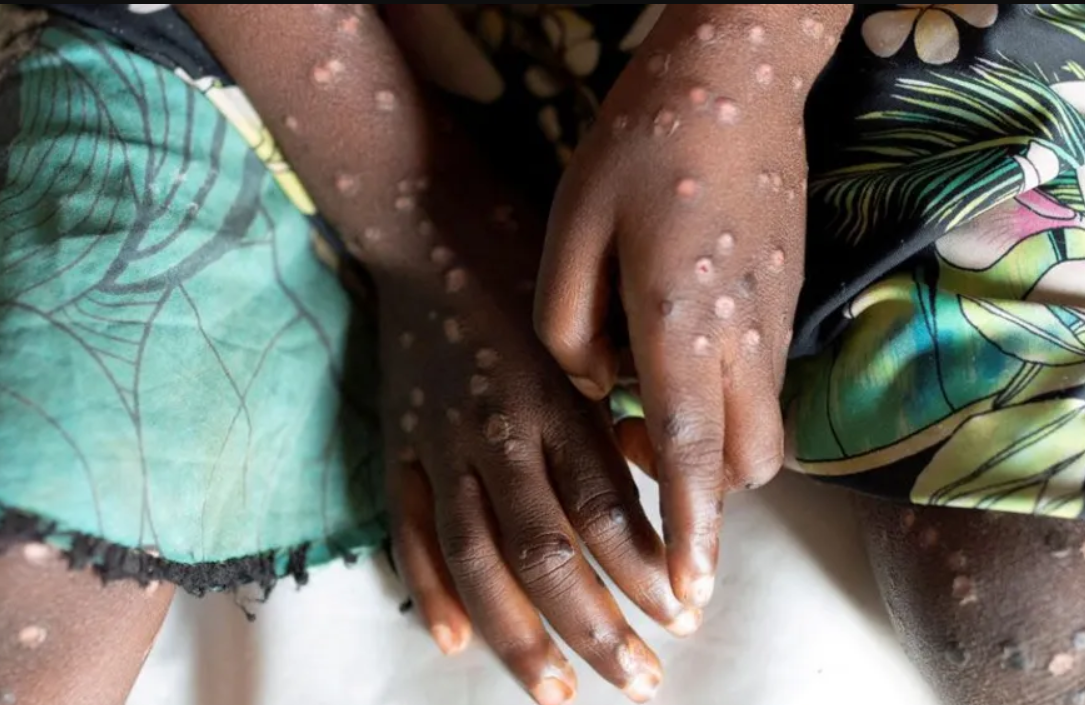African Countries Face a Public Health Emergency Due to Mpox: What to Do?
Previously known as monkeypox, mpox has recently become a major problem in Africa’s public health system, prompting the Africa CDC to declare a public health emergency. The alarming rapid spread of a new strain of pox has public health officials and scientists scrambling to find a solution, and this declaration emphasizes how urgent it is.
Concerning Mpox’s Rapid Spread Across Africa
Over 13,700 instances of pox have been recorded in the Democratic Republic of the Congo (DRC) since the beginning of the year, with 450 fatalities. The Democratic Republic of the Congo has not been able to contain the virus, which is known to cause sores all over the body. It has progressed to neighboring nations such as Rwanda, Burundi, Kenya, and the Central African Republic (CAR). The sudden rise of cases has forced the Africa CDC to move quickly in order to stop the issue from getting worse.
How Does Mpox Spread? And What Is It Anyway?
Humans can contract pox from infected animals because it is a zoonotic virus. Direct physical contact, such as skin-to-skin contact, sexual activity, or even respiratory droplets when speaking or breathing close to an infected person, are all examples of close contact that can transmit the virus between humans.
Similar to smallpox, although often less severe, are the symptoms of mpox. Symptoms can manifest anywhere on the body and include a high temperature, sore muscles, and a rash or lesions. Although the majority of mpox cases do not progress to serious complications, the disease, if untreated, can be lethal.
The Two Most Common Varieties of Smallpox: A Worldwide and Local Concern
The pox virus is characterized by two main strains. A worldwide epidemic in 2022, affecting nations all across the world, including the US, Europe, and Australia, was caused by the milder strain. Although this strain did not cause significant mortality, it was mostly transmitted through sexual contact.
The second, deadlier strain is native to Central Africa and is much more dangerous. This particular strain causes the present epidemic in the DRC and nearby countries. Health officials are taking swift measures to stop the spread of this strain after it emerged in new areas, which has increased their fears.
Coordinated Vaccination Efforts: The Public Health Reaction
In order to coordinate a response to the pox outbreak across the continent, the Africa CDC has declared a public health emergency. Medical supplies, vaccinations, and staff can be more easily mobilized to the places worst hit by this change.
Taking preventative actions is crucial in containing the epidemic, according to Jean Kaseya, chief of the Africa CDC. The purpose of this proclamation goes beyond mere protocol. This is an urgent rallying cry. The realization that being reactive is no longer an option has come to light. “Our efforts to contain and eliminate this threat must be proactive and aggressive,” he stressed.
Health officials from other continents are also keeping a careful eye on the issue. There is currently a “very low” possibility of pox spreading to Europe, according to the European Centre for Disease Prevention and Control (ECDC). However, watchfulness is necessary to stop the virus from crossing borders due to the worldwide nature of travel and commerce.
The Status of Vaccines and Their Prospective Use
There are now three vaccinations that can protect against mpox; however, their availability is restricted. Vaccination is usually reserved for high-risk persons or those who have been in close proximity to an infectious person. In light of the present epidemic, plans are in motion to acquire some 10 million doses of the vaccine for distribution across Africa. In order to prevent the spread of the virus and safeguard susceptible populations, this strategic move has been implemented.
Finally, A Global Call to Action
A constant reminder of the danger of zoonotic illnesses is the continuing mpox epidemic in Africa. In order to contain and, ultimately, eradicate the virus, the affected regions need the support of the worldwide community. A public health emergency has been declared in Africa by the CDC, which is a major start in the right direction; however, the public, healthcare organizations, and governments must all have their wits about them and respond swiftly.
The necessity for effective surveillance systems to identify and react to new infectious diseases is further underscored by this scenario, as is the significance of worldwide health security. To better prepare for and respond to future global public health crises, it is essential to draw lessons from the mpox epidemic in Africa.



















